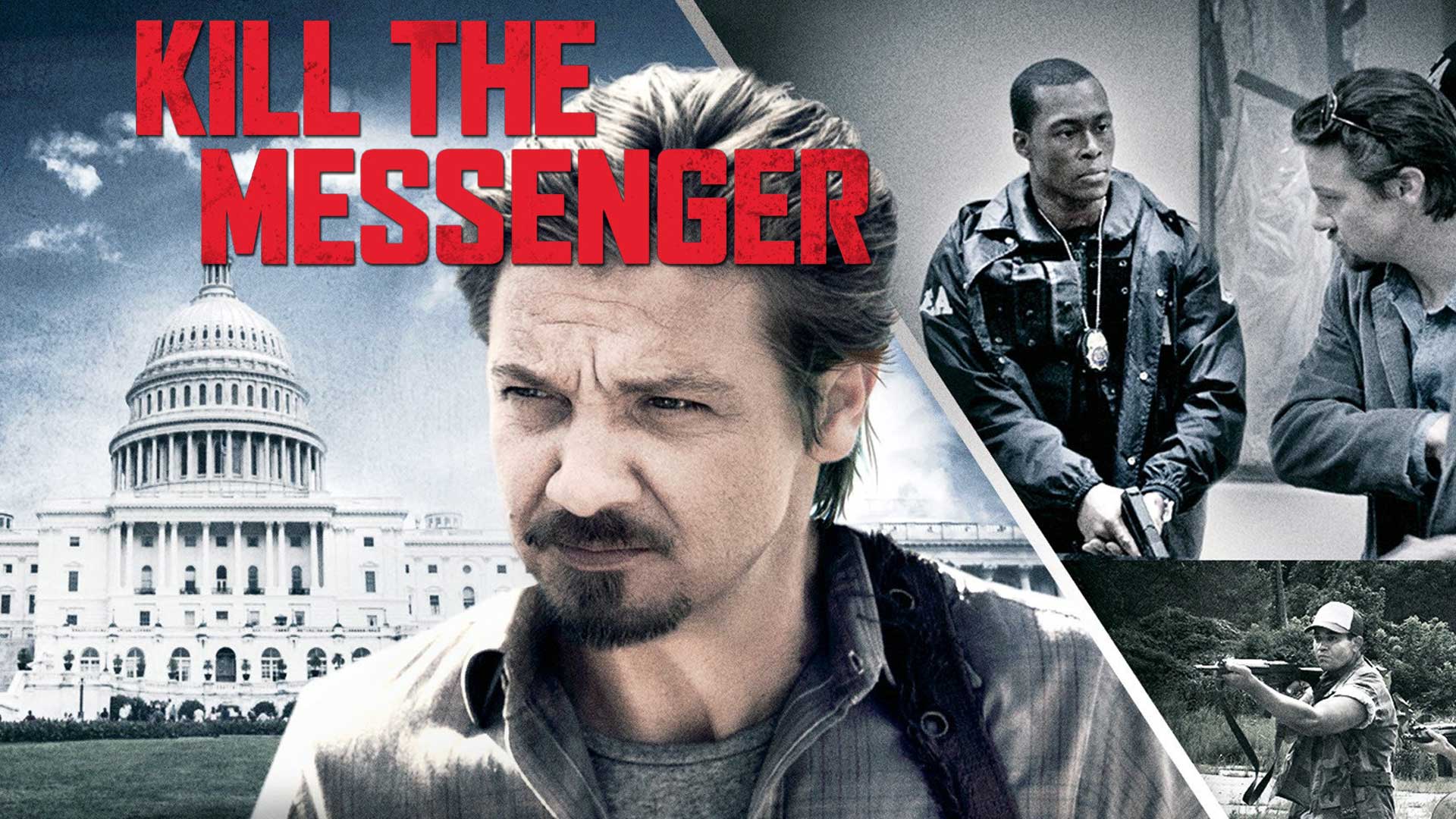Kill the Messenger (2014)

Kill the Messenger (2014), directed by Michael Cuesta, is a powerful political thriller based on the true story of journalist Gary Webb, played with depth and intensity by Jeremy Renner. The film chronicles Webb’s journey as he uncovers a shocking and explosive link between the CIA, Nicaraguan Contra rebels, and a massive influx of cocaine that flooded American streets during the 1980s. It is a story about speaking truth to power and the perilous consequences faced by those who dare to challenge the establishment.
Set in the mid-1990s, Webb, an investigative reporter for the San Jose Mercury News, stumbles upon a story that has the potential to shake the foundations of government power. His investigation begins when he receives a tip about the U.S. government’s alleged involvement in drug trafficking. Webb’s relentless pursuit leads him to uncover documents suggesting that the CIA may have allowed — if not facilitated — Nicaraguan drug cartels’ operations in America, with the profits being funneled to the Contra rebels fighting the Sandinista government in Nicaragua.

This discovery becomes the basis for Webb’s three-part series titled “Dark Alliance,” which exposes a dark and complex web linking the CIA, drug lords, and America’s inner-city drug epidemic. As Webb’s story gains traction, he becomes a hero to some and a pariah to others, sparking outrage across the nation, particularly among those affected by the crack cocaine crisis. Renner’s portrayal of Webb is compelling, capturing his transformation from a respected journalist to a man whose life is turned upside down by his pursuit of the truth.
However, the real drama begins when powerful interests — both governmental and media — close ranks to discredit Webb and undermine his reporting. Webb quickly finds himself targeted by a ruthless smear campaign. His credibility, career, and personal life are systematically attacked, as larger media outlets question his sources and the veracity of his claims. The film paints a disturbing picture of how easily a truth-teller can be silenced and marginalized when powerful institutions feel threatened. Webb’s professional and personal struggles are depicted with raw honesty, showing how he becomes increasingly isolated and haunted by the weight of his revelations.
The strength of Kill the Messenger lies in its unflinching examination of the cost of investigative journalism. It serves as both a character study and a broader commentary on media manipulation, government secrecy, and the high price of whistleblowing. Jeremy Renner’s performance drives the film, portraying Webb as a complex man caught between his commitment to exposing the truth and the consequences of that exposure. Renner captures Webb’s gradual descent into paranoia, frustration, and disillusionment, making his struggle deeply relatable and sympathetic.
The film is supported by a strong ensemble cast, including Mary Elizabeth Winstead as Webb’s editor Anna Simons, Rosemarie DeWitt as Webb’s wife Sue, and Oliver Platt as the Mercury News executive editor Jerry Ceppos. Each character provides a different perspective on Webb’s battle, from supportive colleagues to those more skeptical of his relentless pursuit. The contrast between Webb’s dogged determination and the political machinery arrayed against him underscores the enormity of the stakes and the courage it takes to challenge the status quo.

Cuesta’s direction keeps the tension high, creating an atmosphere of paranoia and urgency as Webb races to expose the truth while facing increasing threats. The film’s pacing reflects the rapid unraveling of Webb’s life and career, creating a sense of inevitability as the forces aligned against him close in. The cinematography captures the grittiness of both Webb’s investigation and the subsequent fallout, enhancing the film’s atmosphere of moral ambiguity and danger.
Kill the Messenger does not offer easy answers; instead, it invites viewers to reflect on the nature of power, accountability, and truth. It raises uncomfortable questions about the role of the press in holding institutions accountable and the lengths to which those institutions will go to protect themselves. In the end, the film serves as both a tribute to Webb’s courage and a cautionary tale about the dangers of challenging entrenched power structures.
The film’s somber tone and tragic conclusion reflect the real-life consequences of Webb’s reporting. Though his work was later vindicated, it came at a devastating personal cost. The film closes with a reminder of the very real toll that investigative journalism can take on those who dare to uncover inconvenient truths. It leaves viewers grappling with the complexities of morality, the pursuit of justice, and the sacrifices made by those who stand against corruption.
In summary, Kill the Messenger is a gripping, thought-provoking thriller that shines a light on one of the most controversial chapters in modern American history. Through Renner’s powerful performance and Cuesta’s deft direction, the film pays homage to Gary Webb’s bravery and underscores the vital importance of a free press in the face of overwhelming opposition. It is a story of courage, tragedy, and the relentless pursuit of truth in an often unforgiving world.










